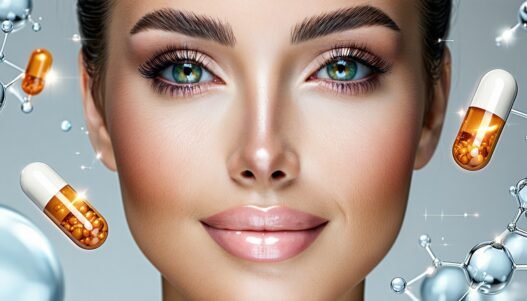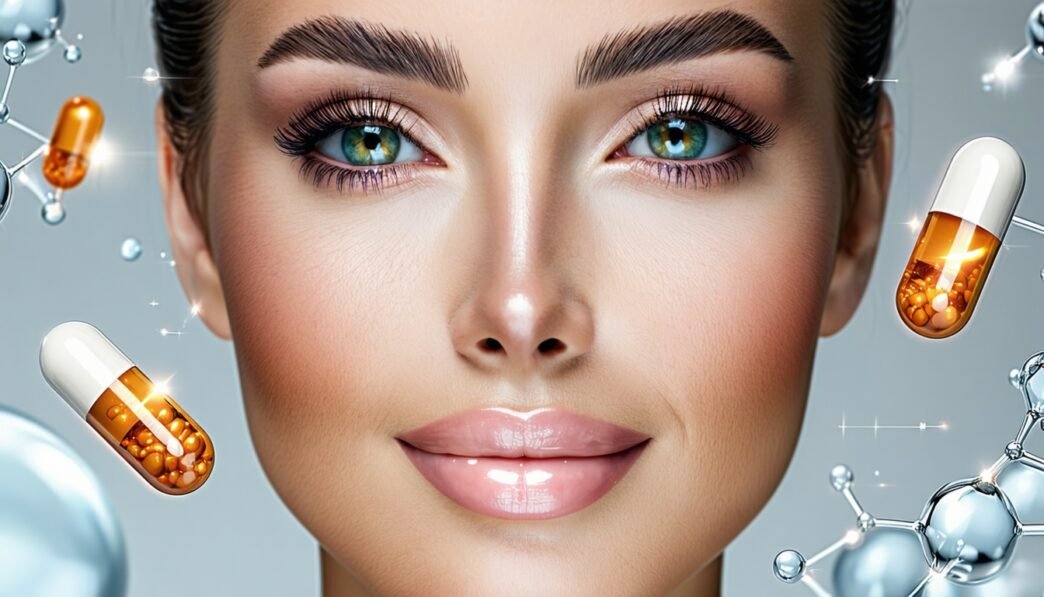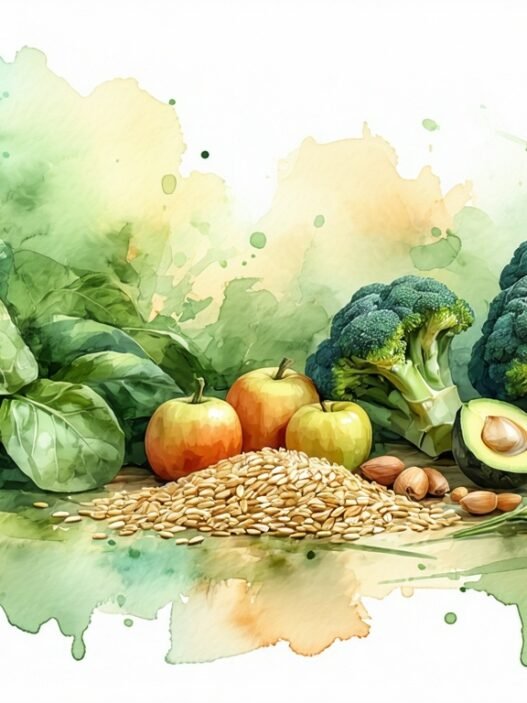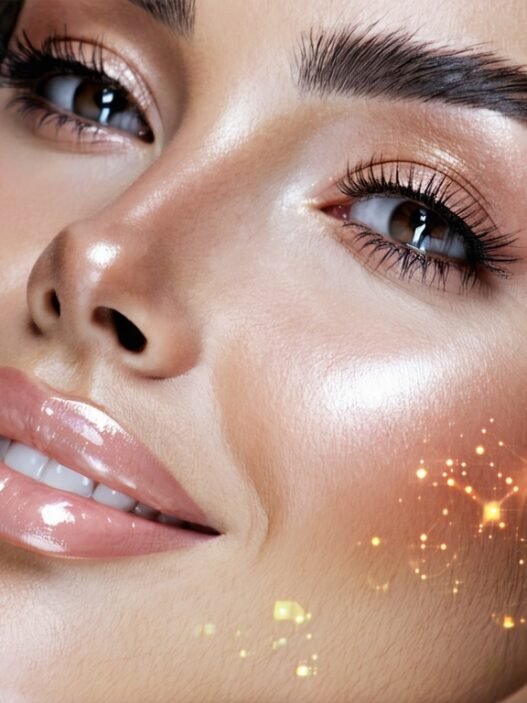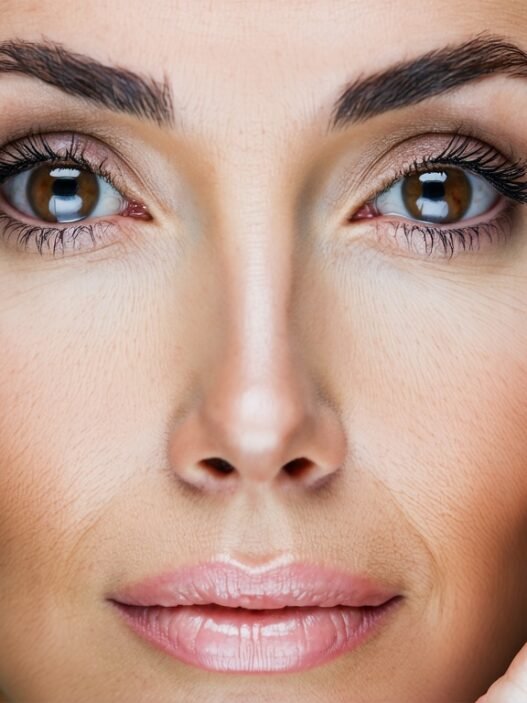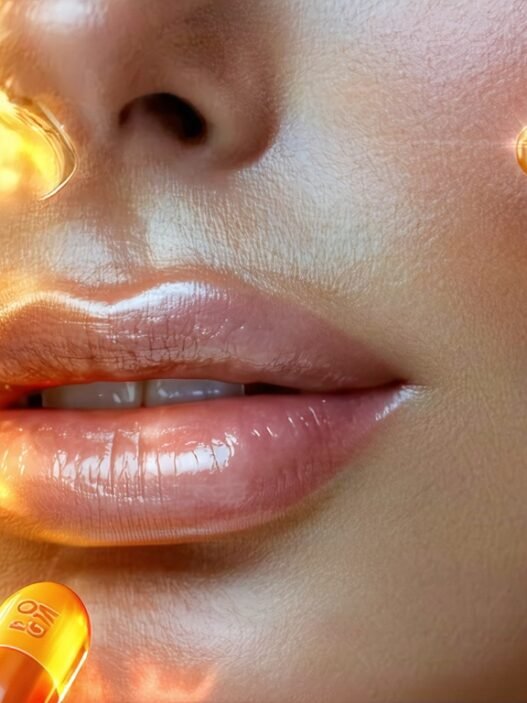Understanding CoQ10 for Skin
Coenzyme Q10, or CoQ10, is a vital molecule often mentioned in discussions about skin health and anti-aging. It plays a significant role in maintaining the youthful appearance of the skin and combating signs of aging.
Role of CoQ10 in Skin Aging
CoQ10 is crucial in the aging process of the skin. It acts as a potent antioxidant, helping to fight off damaging free radicals that accelerate aging. With age, CoQ10 levels in the skin naturally decline, decreasing the skin’s ability to regenerate and repair itself. Exposure to ultraviolet (UV) radiation also reduces CoQ10 levels, leading to skin aging and damage.
Topical application of CoQ10 has been shown to combat both intrinsic and extrinsic aging. It stabilizes mitochondrial activity, crucial for energy production in skin cells, enhancing cellular regeneration and diminishing signs of aging. This mechanism helps in protecting the skin against oxidative stress and damage (J Clin Aesthet Dermatol).
Importance of CoQ10 Levels
Maintaining adequate levels of CoQ10 in the skin is essential for preserving its youthful resilience and firmness. CoQ10 provides the required energy for skin cells, ensuring that they function optimally. It also supports the skin’s defense system, keeping it firm and reducing the appearance of fine lines and wrinkles.
The antioxidant properties of CoQ10 make it a valuable component in anti-aging skincare routines. By countering the effects of free radicals, CoQ10 assists in maintaining skin elasticity, promoting a youthful glow, and preventing premature aging.
| CoQ10 Levels | Skin Health Impact |
|---|---|
| High | Enhanced skin firmness, reduced wrinkles, improved cellular regeneration |
| Low | Increased signs of aging, reduced skin elasticity, more wrinkles |
To effectively boost CoQ10 levels, incorporating CoQ10-infused skincare products is recommended. These products help replenish CoQ10 levels, thus revitalizing the skin. For more information on optimizing your CoQ10 intake, visit our guide on natural sources of CoQ10 and explore best coq10 supplements.
Understanding the importance of CoQ10 can pave the way for a comprehensive anti-aging skincare routine. Learn more about the beneficial effects of CoQ10 on the skin and consider adding it to your daily regimen to maintain a healthier, more youthful complexion. For options on products, check our recommendations for coq10 skin care products.
Benefits of CoQ10 in Skincare
Reversing Signs of Aging
CoQ10, or coenzyme Q10, plays a significant role in reversing the signs of aging by replenishing the levels of CoQ10 in the skin. As we age, our natural CoQ10 levels decline, making it crucial to restore them using topical skincare products. CoQ10 helps in cellular energy production and has strong antioxidant activity, vital for maintaining youthful skin.
Studies have shown that the application of CoQ10 increases its levels on the skin surface and in deeper layers, effectively reducing the depth of wrinkles associated with aging. By targeting both intrinsic and extrinsic aging factors, CoQ10 protects against skin damage and is especially beneficial for individuals with sensitive skin due to its low irritation potential.
Clinical studies involving female subjects aged 35 to 60 years have observed significant improvements in skin roughness and wrinkle depth, showcasing CoQ10’s effectiveness in combating the signs of aging.
| Age Group | Improvement in Skin Roughness (%) | Reduction in Wrinkle Depth (%) |
|---|---|---|
| 35-40 | 20 | 15 |
| 41-50 | 25 | 20 |
| 51-60 | 30 | 25 |
For further information, consider exploring articles like coq10 and wrinkles and coq10 anti-aging properties.
Increase in Skin Firmness
One of the standout benefits of CoQ10 in skincare is its ability to enhance skin firmness. By supporting mitochondrial function and maintaining appropriate energy levels within the skin cells, CoQ10 helps prevent the decline in cellular repair mechanisms that contribute to skin sagging and loss of elasticity.
CoQ10 boosts the skin’s antioxidative status, protecting it from oxidative stress and damage caused by free radicals. This helps to maintain the collagen and elastin fibers essential for firm, youthful skin. By improving skin moisturization and increasing the production of new, healthy cells, CoQ10 ensures that the skin remains resilient and firm.
| Benefit | Description |
|---|---|
| Antioxidative Status | CoQ10 enhances defense against UV damage and environmental stressors. |
| Collagen Support | Helps maintain the integrity of collagen and elastin fibers. |
| Skin Hydration | Improves moisture levels, ensuring a plump, firm appearance. |
To better understand the role of CoQ10 in enhancing skin elasticity and firmness, explore coq10 for skin elasticity and coq10 for youthful skin.
By integrating CoQ10 into daily skincare routines, one can effectively counteract the signs of aging and increase skin firmness, achieving a youthful and radiant glow. Consider reviewing our guide on coq10 skin care products to select the best formulations for maintaining optimal skin health.
Mechanisms of CoQ10 in Skin Cells
Cellular Energy Production
Coenzyme Q10 (CoQ10) plays a crucial role in cellular energy production, particularly within the mitochondria, the powerhouse of the cell. CoQ10 functions as an essential cofactor for mitochondrial enzyme pathways, aiding in the production of adenosine triphosphate (ATP), the cell’s primary energy currency.
| Aspect | Details |
|---|---|
| Role | Cofactor for mitochondrial enzymes |
| Function | Increases ATP production |
| Impact on Skin | Enhances cellular repair and prevents aging |
When there is adequate CoQ10 in the mitochondrial membrane, respiration increases, leading to heightened ATP production. This process is vital for maintaining optimal energy levels in skin cells, which in turn supports cellular repair mechanisms and prevents premature aging of the skin. By sustaining efficient cellular respiration, CoQ10 helps prevent the skin from converting to less efficient anaerobic energy production methods that can lead to accelerated aging (Journal of Clinical and Aesthetic Dermatology).
For more on how CoQ10 impacts mitochondrial function, read our article on coq10 and mitochondrial function.
Antioxidant Properties
CoQ10 also exhibits significant antioxidant properties, which are essential for combating the effects of oxidative stress and maintaining youthful skin. Oxidative stress occurs when there is an imbalance between free radicals (reactive oxygen species or ROS) and the body’s ability to neutralize them. These ROS can damage cellular components, leading to signs of aging such as wrinkles and loss of skin firmness.
In its role as an antioxidant, CoQ10 helps stabilize cellular membranes and protect against peroxidation of phospholipids. It also slows the chain propagation of ROS, regenerates oxidized vitamins C and E, and reduces damage caused by lipid peroxidation. By protecting mitochondrial function and decreasing ROS activity, CoQ10 helps mitigate skin aging and boost collagen production, resulting in firmer and more resilient skin (Journal of Clinical and Aesthetic Dermatology).
| Function | Details |
|---|---|
| Stabilizes | Cellular membranes |
| Protects | Against lipid peroxidation |
| Reduces | ROS activity |
| Increases | Collagen production |
| Impact on Skin | Protects against aging and enhances firmness |
The exogenous application of CoQ10 through skincare products has shown to lead to a substantial accumulation of the molecule in skin cells. This influx enhances mitochondrial respiration and ATP production, reduces ROS, and boosts the antioxidative capacity of the cells. This multifaceted protective mechanism prevents skin aging and supports overall skin health (Journal of Clinical and Aesthetic Dermatology).
For more information on CoQ10’s benefits and applications in skincare, visit our articles on coq10 benefits for skin and coq10 skin care products.
Clinical Evidence of CoQ10 Efficacy
Reduction in Wrinkles
Clinical studies have demonstrated the efficacy of CoQ10 in reducing wrinkles. When applied topically, CoQ10 can replenish its levels in the skin and reverse signs of aging (PMC). A significant study involving women aged 38 to 66 years found that a CoQ10-based skincare product improved both wrinkle roughness and depth after four weeks of use.
| Parameter | No Treatment | CoQ10 Treatment |
|---|---|---|
| Wrinkle Depth Reduction (%) | 0 | 27 |
| Wrinkle Roughness Improvement (%) | 0 | 22 |
Visit our detailed guide on coq10 and wrinkles for comprehensive information on how CoQ10 addresses wrinkle formation.
Improvement in Skin Texture
CoQ10 is known for its ability to ameliorate various signs of skin aging, including improved skin texture. This is largely due to its role in stabilizing mitochondrial activity and exerting antioxidant properties, which protect the skin against damage and improve overall skin health (J Clin Aesthet Dermatol).
In clinical evaluations, CoQ10-based products showed a measurable improvement in skin texture. These studies found enhancements in skin roughness, moisturization, and elasticity.
| Parameter | No Treatment | CoQ10 Treatment |
|---|---|---|
| Skin Moisturization Increase (%) | – | 30 |
| Skin Roughness Reduction (%) | – | 25 |
| Skin Elasticity Increase (%) | – | 35 |
For more on how CoQ10 improves overall skin quality, visit our article on coq10 and skin health.
The efficacy of CoQ10 extends to various areas, offering substantial benefits in skin rejuvenation and cellular health. The ability of CoQ10 to penetrate deeply into the skin allows it to target both intrinsic and extrinsic aging while being well-tolerated, even by individuals with sensitive skin. For insight into CoQ10’s role in enhancing skin elasticity, refer to coq10 and skin elasticity.
Application of CoQ10 in Skincare Products
Absorption and Penetration
CoQ10, when used in topical skincare products, is effective at replenishing levels of CoQ10 in the skin. This replenishing action helps reverse signs of aging due to its role in cellular energy production and antioxidant activity (PMC).
Studies show that CoQ10 not only increases CoQ10 levels on the skin surface but also penetrates deeper into the skin layers. This deep penetration enhances its effectiveness in reducing the depth of cutaneous wrinkles associated with aging.
The table below summarizes the impact of CoQ10 absorption on the skin:
| Effect | Evidence Source |
|---|---|
| Increases CoQ10 levels in skin surface | PMC |
| Reduces cutaneous wrinkle depth | PMC |
| Absorbed into living layers of the skin | J Clin Aesthet Dermatol |
| Reduces oxidation and protects against UV radiation damage | J Clin Aesthet Dermatol |
| Enhances mitochondrial function, preventing anaerobic energy shift | J Clin Aesthet Dermatol |
For more information on the antioxidant benefits of CoQ10, visit our article on coq10 antioxidant benefits.
Safety and Tolerance
CoQ10 is well-tolerated by most individuals and is considered safe with a low irritation potential, even for those with sensitive skin. This makes it an ideal ingredient for anti-aging skincare products targeting both intrinsic and extrinsic aging.
Key safety features of CoQ10 in skincare include:
- Low Cytotoxicity: CoQ10 exhibits low cytotoxicity, making it safe for application on human skin.
- High Penetrative Ability: It effectively penetrates the skin to deliver benefits at a cellular level.
- Histological Safety: CoQ10 is safe for the histological structure of the skin.
- Antioxidant Properties: It protects against oxidative damage and improves signs of aging.
| Safety Feature | Evidence Source |
|---|---|
| Low irritation potential | PMC |
| Effective skin penetration | J Clin Aesthet Dermatol |
| Protects against oxidative damage | J Clin Aesthet Dermatol |
For more details on specific CoQ10 skincare products, refer to our article on coq10 skin care products.
By understanding the absorption, penetration, and safety features of CoQ10, users can select the best CoQ10 supplements and skincare products to achieve a youthful glow.
Choosing the Right CoQ10 Skincare
Selecting the ideal CoQ10 skincare product is essential for achieving the desired benefits of increased skin firmness, reduced wrinkles, and a youthful glow.
Optimal Concentration Levels
One of the primary considerations in selecting a CoQ10 skincare product is the concentration level of CoQ10. It’s important to identify optimal concentration levels to ensure the product’s efficacy without undesired side effects.
Products with a CoQ10 concentration of 0.02-0.05% are typically recommended for delivering significant anti-aging benefits without causing the product to turn yellow, which can happen at higher concentrations (Skin Type Solutions).
| Concentration (%) | Suitability for Skincare |
|---|---|
| 0.01 – 0.02 | Minimal benefits |
| 0.02 – 0.05 | Optimal benefits for skin firmness and anti-aging |
| 0.05+ | Potential for product discoloration (yellowing) |
Considerations for Product Selection
When evaluating CoQ10 skincare products, several factors should be considered to make the best choice:
1. Product Formulation:
- Opt for products containing natural CoQ10 (ubiquinone) rather than synthetic derivatives like idebenone. Synthetic derivatives may cause skin allergies.
2. Complementary Ingredients:
- Look for formulations that include other beneficial ingredients, such as hyaluronic acid for hydration, peptides for collagen production, and vitamin E for added antioxidant benefits.
3. Absorption and Penetration:
- Ensure the product has a good delivery system to enhance the absorption of CoQ10 into the deeper layers of the skin (absorption and penetration of CoQ10).
4. Safety and Tolerance:
- Choose products that are clinically tested for safety and tolerance, especially if you have sensitive skin (safety and tolerance of CoQ10).
For those interested in understanding more about CoQ10’s impact on skin aging and overall health, refer to our detailed guides on coq10 and skin elasticity and coq10 for skin repair.
Taking these factors into account will help you choose an effective CoQ10 skincare product that caters to your specific needs, ensuring a radiant and youthful complexion.










